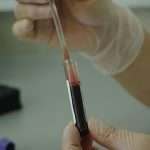Involuntary Organ and Tissue Donors
News media reports on stem cell research. Scientists think the stem cells can do all sorts of healing, repairing, and restoring. Some of the stem cells being used for research are being harvested from fetal tissues. Should this be a concern?

The fetal tissues are no longer useful to the dead fetuses. Thousands of fetuses have been getting slaughtered, so there can be a large supply of tissue from which to experiment. And it can provide additional streams of revenue to the ones supplying the tissue.
Now I can point out this one thing. We have to volunteer to be donors. We can sign up to be an organ donor. But we have to sign up. An emblem gets put on our driver’s license when we sign up. There are blood drives where we may donate our blood. But the drives are offered as a voluntary thing. The government hasn’t mandated people donate organs or blood. We may voluntarily donate of our bodies when we are old enough to be considered as having that authority to do so. Maybe parents can sign off on their children, their minors, doing that.
Involuntary Organ and Tissue Donors
But where are the rights of Continue reading...
So those babies didn’t have a chance to sign up to have their bodies donated for medical science. But that’s what’s being done. They’re not being respected. They have rights from the God who formed them. (Read Our Babies Are Made in the Image of God.) Their personhood is not being respected. Why is that [along with abortion] not yet considered to be unconstitutional and outlawed?
Maybe their mothers signed off, as the adult over the minor, on their bodies being used for medical science. Did the mothers knowingly sign off on the tissue harvesting? Or was the fact that the child’s tissues would be harvested concealed in the fine print that few people would bother to read and fewer would likely understand? Were those mothers compensated, or were just the clinics that killed the children compensated for the fetal tissues? What kind of moral ramifications are raised when compensation is brought into the equation? Would women get pregnant just to sell their baby’s body parts to medical science?
Again, all of this completely ignores that the baby is a unique person with their own thoughts, desires, and feelings about this subject (Read Personhood Stories), and who would—if we were to understand—be protesting their sacrifice for the sake of science. Might there be benefits to adults in researching stem cells? Yes. But our rights end where another’s rights begin. And our right to improve our health through stem cell research ends where the fetus’ right to life begins (which is at the point of conception).
